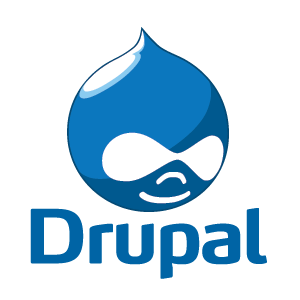Drupal is an open source content management platform (CMS) which powers millions of websites and applications. It is fully extensible and flexible and you have access to an active developer community worldwide. There’s a huge market of Distributions, Themes, and Modules available for Drupal which can help you quickly build and customize your web project.
Your website is the front door to your business – it provides a first impression of the organization, generates leads, and propagates your brand message. However, looking pretty will not get you to the top of the search engine results page (SERP).

Here’s why Drupal is the best:
- Business Agility
The time between releases fits with your strategic planning: This is a great bonus for organizations since the new functionality is added more quickly than what you could expect with other CMS’s, which allows you to quickly adapt to market and environmental changes in productive and cost-effective ways. Adaptability serves your business since you can achieve high performance quickly at lower costs, and increase user engagement. And it’s going to get even better with the next releases, which should have shorter time frames for releases.
- Customization:
Unlike most other CMS’s, Drupal has very few limitations to meeting an organization’s needs. It supports your specific business logic and provides organizations with the personalized application, without damaging the usability. You can also customize roles and permissions of your users.
- Drupal is very secure
While technical in nature, security for your website is of utmost importance for any business. At a minimum, an insecure website will be open to hacks that could ultimately crash your website, resulting in downtime and lost customers. If you’re an e-commerce site or other business that stores customer data and information on your site, having security holes can not only mean lost data but also legal risks as well. Drupal is the most stable and most secure of any available CMS because Drupal has an active community of security experts constantly combing the code for vulnerabilities.
- Powerful Content creation ability:
The main focus of Drupal is to provide powerful content creation and collaboration. Easily create and publish content, set user roles and permissions, choose who can view/edit/share content and more. You’re in total control.
- SEO friendly CSM:
Clean code, power modules and modern web publishing make Drupal a very SEO Friendly CMS. Most alternative things that it has the wide range of 3rd party modules of SEO you can plug into Drupal to take your SEO initiatives to the next level.
- Social network support:
Social networking integration is also widely supported to help you engage with a wider audience. Drupal also helps your site to create interlink with external media and file server.
- Available e-commerce modules:
Other different add-ons of Drupal are the Adding integrating payment gateways is a breeze with Drupal thanks to a lot of open APIs and Modules. Drupal is a complete box of e-commerce integration platform available which have everything out of the imagine! From payment gateway, logistics handling, shopping carts to customer CRM, messaging and much more.

- Massively scalable:
Drupal CMS is massively scalable. You can start with 5 pages and grow to 5000 without ever needing to change anything. Performance and Security parameters can easily be managed from the Admin console. Some of the world’s high traffic sites like Grammys, White House, Nascar all run on Drupal.
- Getting started with Drupal SEO is easy:
Just download the Drupal SEO Checklist module, drop it into your sites/all/modules folder on your server, and turn it on from the modules admin page. Go through the simple, step-by-step instructions, and you’re well on your way to the best SEO experience you’ve ever had on a CMS.
- Flexible:
With the Drupal content creation and publishing is more easy, because of its provide content authoring with essential tools, like a customizable WYSIWYG editor for content and marketing professionals, authentication, and permissions for managing editorial workflows as well as content. All of the level of website user like- translator, Authors, publisher, site administrator, and developer, nowadays started to keep trust in Drupal to meet their requirements, with a workflow that offers them just enough access to features they need. If you think about an effective and responsive web development them Drupal support’s you to build a suitable platform for multiple devices.




